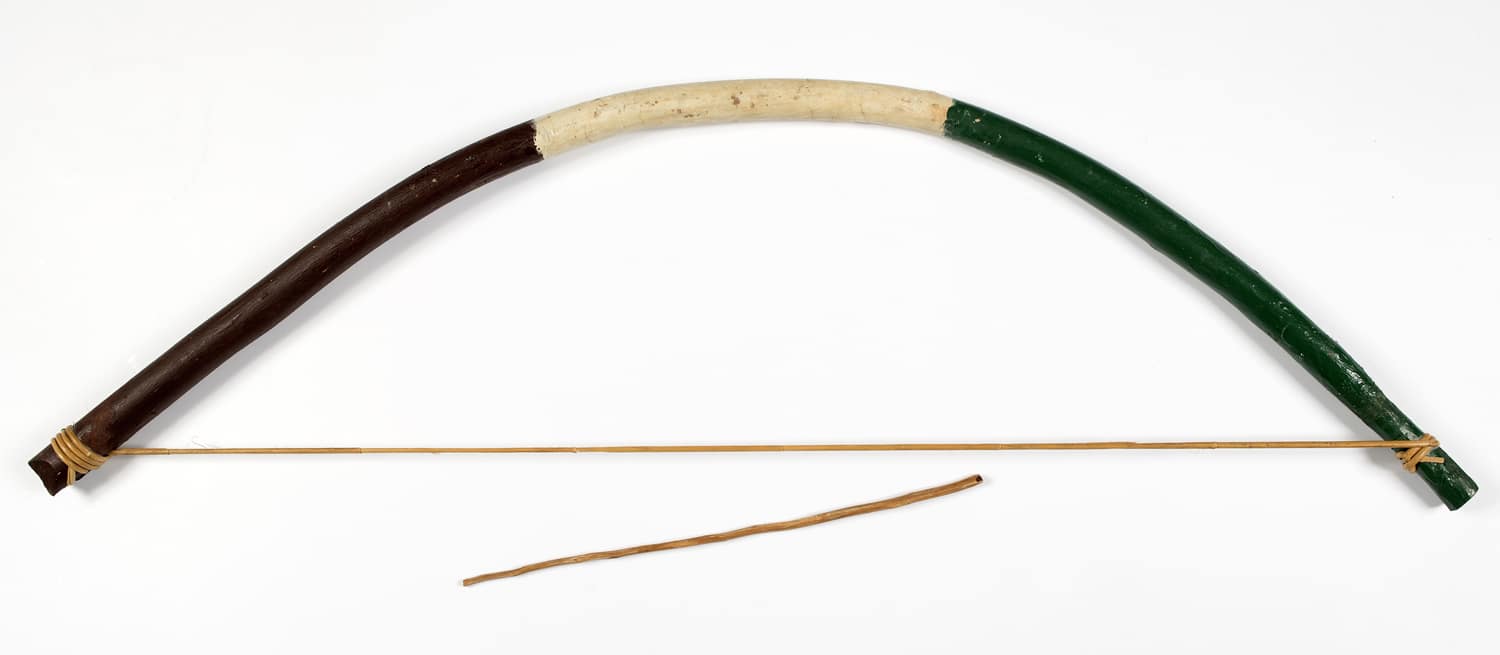Jordi Lammers: Letter to the spirits
Eighteen young Flemish and Dutch authors bring an artefact to life from the Slavery exhibition at the Rijksmuseum in Amsterdam. Jordi Lammers has written a letter from the perspective of the Benta, or mouth-bow, a stringed instrument that travelled with the enslaved people to places like Curaçao where it is still played to this day.
 Mouth-bow (Benta), before 1958
Mouth-bow (Benta), before 1958© Collection Foundation National Museum of World Cultures
Letter to the spirits
Dear spirits,
Would you believe it, I’m writing you this letter from a museum. A museum! Who’d have thought.
I’m curious to hear how you all fared, where you are and how you’re doing. Sometimes, after everybody’s gone, I whisper your names in the dark: tambu grandi, triangle, wiri. For a brief moment it feels as if we’re back together.
Do you miss Curaçao as much as I do? I miss the open air, the sound of the forest and the songs of the people. I clearly remember how I always needed some time to myself after we’d made music together. It wasn’t until the people were gone and we’d been quietly put away that I began to ponder the stories they told. Still warm from their hands, I’d try to fall asleep, but couldn’t. I kept thinking about what was happening to the musicians when we weren’t around.
If truth be told: I’d envisaged a different future. Better, I guess, or at least more active. Now I lie in a glass cabinet all day long, not doing anything. It’s cold, quiet, dull in here. The visitors to the museum don’t talk much and walk down the corridors with their hands behind their backs. Sometimes they don’t even see me. Apparently that’s what happens when you get older. First you’re a forgotten instrument and then you become a found object.
Oh, the more I think about it, the more I miss us playing together. Our sounds were all a bit out of whack – but that’s why it worked. Do you remember what people used to call it? Muzik di zumbi, spirit music. At first I thought it was an insult to our hard work, but now that I’m lying here, I realise it’s actually a huge compliment. Spirits don’t disappear: they keep wandering only to re-emerge somewhere else. I can’t see the songs that come out of the visitors’ mobile phones doing the same.
Not long ago, a visitor knelt down to take a better look at me. I saw myself reflected in his spectacles and had a terrible shock. The sight of me! Yet I also noticed something else, something that gave me hope. Despite my worn exterior, I still feel the desire to break out of this glass case and be heard. Apparently that never goes away. That’s something people and mouth-bows have in common: we’ll never resign ourselves to the silence.
Love,
Benta
This text was written during a residency at Flemish-Dutch cultural organisation Huis deBuren in association with the Biermans-Lapôtre Foundation.












